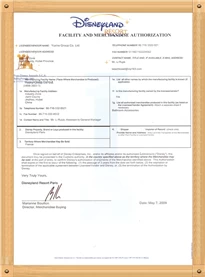Omicron not 'big flu'; it 'can bite'
Leon Li
2022-01-14 15:25:31
The fast-spreading Omicron variant should not be treated like influenza, because it can pose severe risks to unvaccinated people and its long-term effects on recovered patients still remain unclear, health experts said.
As the new strain has swept the world and caused several outbreaks in China, Chinese experts have called for accelerated efforts to expand vaccination and resolutely adhere to the country's science-based virus control strategy.
"Omicron is not a 'big flu', and it can bite, especially for people without strong immunity," Zhang Wenhong, leader of the COVID-19 treatment expert team of Shanghai and head of Fudan University Huashan Hospital's infectious disease department, said at a science forum in Shanghai last week.
He said that successfully fending off the threat of Omicron requires building robust herd immunity and preparing sufficient medical resources.
Some Western countries, despite a significant increase in daily new infections, have managed to lower their COVID-19 death rates because of high vaccination coverage, according to Zhang.
"We should further expand initial immunization and the rolling out of booster shots," he said at the forum. "Meanwhile, it is important to ensure adequate provision of healthcare resources in different regions so that immunocompromised people infected with the novel coronavirus can be treated effectively."
Initial studies from global researchers have suggested that the Omicron variant more readily infects the upper respiratory tract and may not attack the lungs as much as other strains.
However, the new strain remains a serious global health risk due to its high transmissibility and potential to evade vaccine-induced immunity.
The World Health Organization said in a news briefing released on Tuesday that it recorded 15 million new COVID-19 cases worldwide last week, the highest number of cases reported in a single week. The Omicron variant is rapidly displacing the Delta variant in all countries, it added.
Maria Van Kerkhove, the WHO's technical lead on COVID-19, said recently on social media, "While some reports show a reduced risk of hospitalization of Omicron compared to Delta, there are still far too many people infected, in hospital sick & dying from Omicron (& Delta)".
In another post on social media, she said:"Omicron is not mild. Omicron is not flu or the common cold. SARS-CoV-2 is not endemic yet. Now is not the time to give up," she said.
In China, the Omicron variant has triggered a domestic outbreak concentrated in Tianjin municipality and Henan province. A number of regions have also detected imported infections with the new strain.
Zhang Boli, an academician with the Chinese Academy of Engineering and a top traditional Chinese medicine expert, said the Omicron variant appears to be more elusive and to spread more easily.
"Although most local patients only have mild symptoms, it is not appropriate to treat it as a 'big common cold'," he said. "Data from overseas have shown that a large number of Omicron patients have exhibited lingering effects after recovery, and the proportion is higher than that for influenza."
As a result, it would be irresponsible to loosen virus control restrictions, Zhang said, adding that China's "zero-COVID-19" policy should be capable of tackling the new strain's local spread.
"Mass vaccination should be ramped up further, as vaccines' effect in preventing serious cases and deaths remains strong," he said.
According to the National Health Commission, China had administered more than 2.9 billion doses of COVID-19 vaccines as of Tuesday.
As the new strain has swept the world and caused several outbreaks in China, Chinese experts have called for accelerated efforts to expand vaccination and resolutely adhere to the country's science-based virus control strategy.
"Omicron is not a 'big flu', and it can bite, especially for people without strong immunity," Zhang Wenhong, leader of the COVID-19 treatment expert team of Shanghai and head of Fudan University Huashan Hospital's infectious disease department, said at a science forum in Shanghai last week.
He said that successfully fending off the threat of Omicron requires building robust herd immunity and preparing sufficient medical resources.
Some Western countries, despite a significant increase in daily new infections, have managed to lower their COVID-19 death rates because of high vaccination coverage, according to Zhang.
"We should further expand initial immunization and the rolling out of booster shots," he said at the forum. "Meanwhile, it is important to ensure adequate provision of healthcare resources in different regions so that immunocompromised people infected with the novel coronavirus can be treated effectively."
Initial studies from global researchers have suggested that the Omicron variant more readily infects the upper respiratory tract and may not attack the lungs as much as other strains.
However, the new strain remains a serious global health risk due to its high transmissibility and potential to evade vaccine-induced immunity.
The World Health Organization said in a news briefing released on Tuesday that it recorded 15 million new COVID-19 cases worldwide last week, the highest number of cases reported in a single week. The Omicron variant is rapidly displacing the Delta variant in all countries, it added.
Maria Van Kerkhove, the WHO's technical lead on COVID-19, said recently on social media, "While some reports show a reduced risk of hospitalization of Omicron compared to Delta, there are still far too many people infected, in hospital sick & dying from Omicron (& Delta)".
In another post on social media, she said:"Omicron is not mild. Omicron is not flu or the common cold. SARS-CoV-2 is not endemic yet. Now is not the time to give up," she said.
In China, the Omicron variant has triggered a domestic outbreak concentrated in Tianjin municipality and Henan province. A number of regions have also detected imported infections with the new strain.
Zhang Boli, an academician with the Chinese Academy of Engineering and a top traditional Chinese medicine expert, said the Omicron variant appears to be more elusive and to spread more easily.
"Although most local patients only have mild symptoms, it is not appropriate to treat it as a 'big common cold'," he said. "Data from overseas have shown that a large number of Omicron patients have exhibited lingering effects after recovery, and the proportion is higher than that for influenza."
As a result, it would be irresponsible to loosen virus control restrictions, Zhang said, adding that China's "zero-COVID-19" policy should be capable of tackling the new strain's local spread.
"Mass vaccination should be ramped up further, as vaccines' effect in preventing serious cases and deaths remains strong," he said.
According to the National Health Commission, China had administered more than 2.9 billion doses of COVID-19 vaccines as of Tuesday.

The above news was excerpted from china daily by China towel supplier Shenzhen City Dingrun Light Textile Import and Export Corp.Ltd, a company specialized in producing baby diapers, baby bibs, beach towel, blankets, bath towels, tea towels, compressed towels, microfiber towels etc.
















